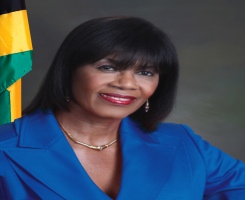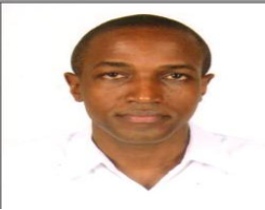BY NATASHA BARSOTTI — A so-called Love March, whose participants are being urged to wear white as a symbol of sexual purity, is expected to take place Sept 15 in Kingston, Jamaica, to oppose pornography, fornication and homosexuality.
![]()
The event will conclude with a concert at Mandela Park featuring prayers, worship, testimonies about being delivered from sexual sin, and performances by Christian artists.
According to Gay Star News, the event’s organizers, Creative Counter Culture and 3R Youth, say they “love homosexuals” but do not recognize gay relationships.
But part of the promotional rhetoric about the march, on a Facebook page entitled Love March 2012: Sex: God’s Way = Our Way, urges those spreading the word about the weekend march to say it’s a march about “sexual purity . . . not against homosexuality.”
“Any time homosexuality is mentioned it must be — We love homosexuals, but homosexuality is sin OR – We are marching against pornography, fornication and homosexuality – in that order,” the post goes on to say. “Please emphasize the prayer focus and love focus. All haters of homosexuals – angry – condemning people – will be sent home! (to and repent!!!),” it continues.
Another Facebook page that counters the weekend’s activities, Stop Jamaica’s Homophobic Love March 2012, notes that response to the weekend march from many in Jamaica’s queer community has been to emphasize the unequal access to public space and expression it confronts as compared to religious groups and people. Activist Angeline Jackson suggests that condemning the Love March could “play into the hands of the church who loves to claim that ‘The big gay lobby is suppressing religious freedom.'”
“I have no problem with persons marching for whatever cause,” Jackson says in a post. “That’s their right, and their use of freedom of speech. That said I think it is hypocritical though to argue freedom of speech, because if LGBT people decided to have their own march it would be trouble, if it was publicized like this love march, it is possible (I cannot say with certainty) that violence could erupt.
“It is time for the rest of Jamaicans who are tired of this hostile takeover of beautiful Jamaica to come forward, the progressive Christians, non-Christians, atheists, agnostics, secularists. We need to rise up and take a stand,” Jackson says.
In another post, Danielle Marion, a self-described human rights advocate, says the religious right continues to “place their fundamentalist quest for sexual purity above the human dignity of sexual minorities in a democratic society. While within the context of our democracy, religious institutions enjoy the right to publicly meet with like-minded people and declare their interests, LGBT Jamaicans do not enjoy the same right. When LGBT people attempt to publicly defend their own interests and rights, they do so at great social and physical risk to themselves and their families. The disparity in who is able to safely declare their beliefs and affirm their rights in public spaces is indicative of the urgent need for legal reform to protect the rights of sexual minorities in our democracy.”
Jamaica’s prime minister, Portia Simpson-Miller, had tongues a-wagging with her unequivocal verbal support for gay citizens during a televised debate during last year’s general elections and still managed to steer her People’s National Party to a landslide victory, copping 41 out of 63 seats. That, despite the opposing Jamaica Labour Party’s ratcheting up its
homophobic rants, accompanied by homophobic lyrics, from election
soapboxes.
![]()

Gay activist Maurice Tomlinson told Xtra in March that his country keeps surprising and disappointing. “Most of the politicians from both parties, we know that privately, they are not in favour of the anti-sodomy law
— the thinking ones, anyway. It’s a small minority that is still,
unfortunately, very antediluvian. The majority were very, very candid
with us that it needed to go.”

But Tomlinson told Gay Star News on the eve of the Love March that the event should be a wakeup call. “‘I hope this march will motivate the still fractured LGBT community on the island to unite against the common enemy of intolerance.
“More than ever we need to be visible in order to counter the perverse stereotypes being peddled about same-gender intimacy. To eradicate hate we must educate.”

 Why you can trust Xtra
Why you can trust Xtra


